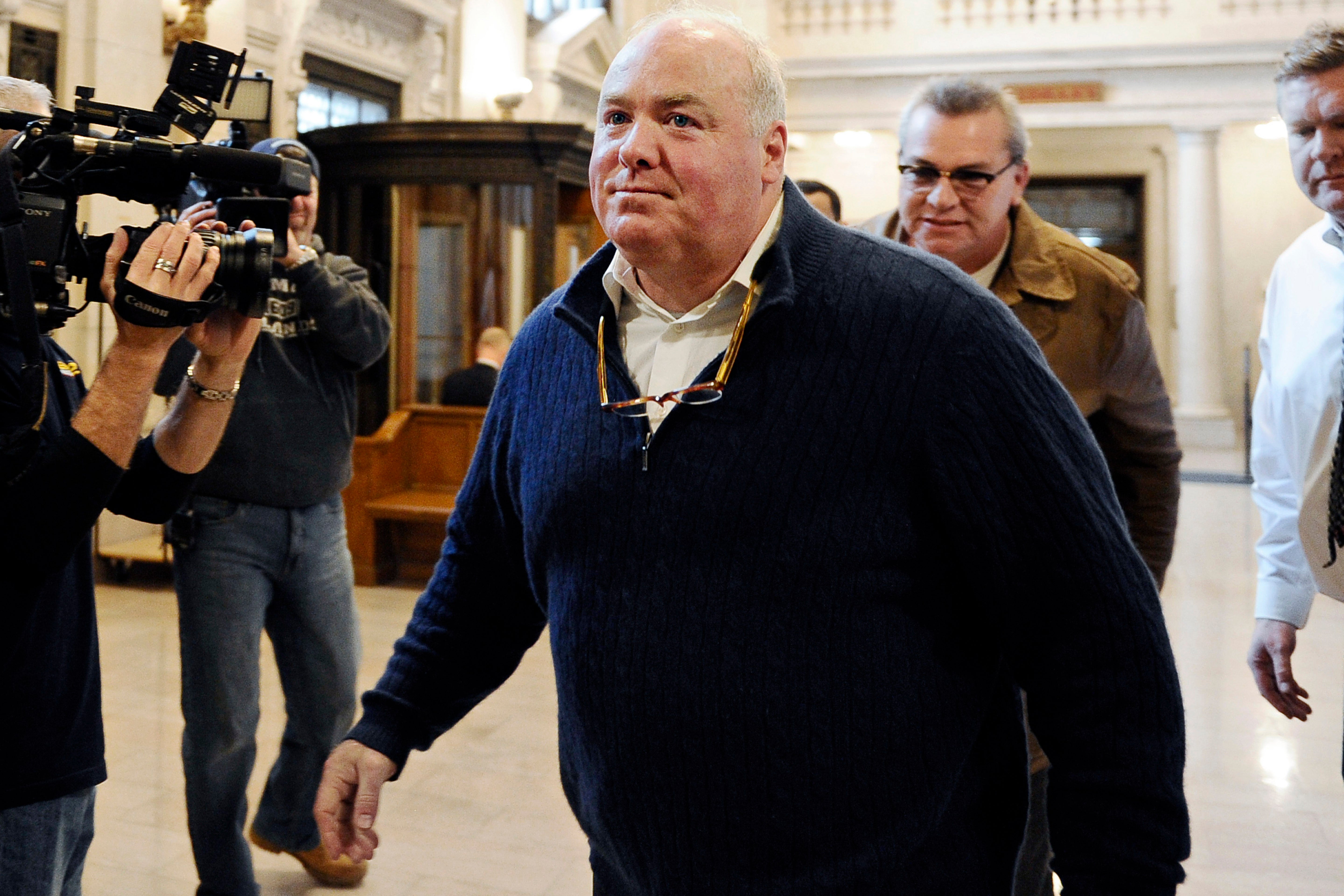Kennedy cousin whose murder conviction was overturned sues former cop, Connecticut town
Kennedy cousin Michael Skakel is suing a police investigator and the town of Greenwich, Connecticut, more than five years after his murder conviction was overturned

Kennedy cousin Michael Skakel, whose murder conviction in the 1970s killing of a teenager in Connecticut was overturned, is suing the lead police investigator in the case and the town of Greenwich for alleged malicious prosecution, civil rights violations and other claimed wrongdoing.
Skakel, 63, a nephew of Robert F. Kennedy’s widow, Ethel Kennedy, was found guilty in 2002 of the 1975 bludgeoning death of Martha Moxley, who lived across the street from the Skakel family in wealthy Greenwich and whose body was found in her family’s backyard. Both Skakel and Moxley were 15 at the time of her death.
The Connecticut Supreme Court overturned Skakel's conviction in 2018, after he had served more than 11 years in prison, saying his defense lawyer failed to present evidence of an alibi. A state prosecutor announced in 2020 that Skakel would not be put on trial again and the murder charge was dropped.
The new lawsuit alleges the investigator, Frank Garr, was intent on getting Skakel convicted and withheld key evidence about other potential suspects from Skakel's trial defense.
The defendants in the lawsuit “knew that there were other more likely suspects and that there was no probable cause to arrest and/or maintain a prosecution against the Plaintiff (Skakel), but continued to do so intentionally and maliciously, in order to convict a ‘Kennedy Cousin,’” the suit alleges.
The state attorney general's office, which is defending Garr, declined to comment Tuesday. A lawyer for Greenwich did not immediately return an email message. A message also was left at a phone listing for Garr.
Skakel's attorney, Stephan Seeger, called the lawsuit a civil rights action against Garr and the town.
“He spent 11 and a half years in jail for a crime he didn’t commit and was put through every thinkable proceeding until the case was finally dismissed,” Seeger said.
The lawsuit, filed in state court in Stamford in November, seeks unspecified damages over $15,000.
The case drew international attention because of the Kennedy name, Skakel’s rich family, numerous theories about who killed Moxley and the brutal way in which she died. Several other people, including Skakel’s brother Tommy Skakel, were mentioned as possible killers. Tommy Skakel denied involvement in the killing.
The slaying took place in the exclusive Bell Haven section of Greenwich where Martha and Skakel were neighbors. At trial, prosecutors said Skakel was angry with Martha because she had spurned his advances while having a sexual liaison with Tommy. There also was witness testimony about incriminating statements Skakel allegedly made.
Skakel's appellate lawyers later argued that Skakel's trial attorney, Mickey Sherman, made poor decisions, including not focusing on Tommy as a possible suspect and failing to attempt to contact an alibi witness. They said Skakel was several miles away from the crime scene, watching a Monty Python movie with friends when Moxley was killed on Oct. 30, 1975.
Sherman has defended his representation of Skakel.
There was no physical evidence and no eyewitness linking Skakel to the killing, his attorneys said.
Skakel's cousin, Robert F. Kennedy Jr., now a presidential candidate, was one of his staunchest defenders and wrote a book saying Skakel was framed.
Skakel was first arrested in 2000, after new books about the Moxley case reignited the police investigation.
The lawsuit claims Greenwich police, prosecutors and Garr, who worked for Greenwich police before becoming an inspector with the state's attorney's office, withheld crucial information beneficial to Skakel from his trial defense.
The information, the suit says, included sketches of a potential suspect who did not resemble Skakel, psychological reports on other suspects and statements from witnesses who said two other men were in Moxley's neighborhood on the night of her killing, including one who made incriminating comments.
The lawsuit also alleges Garr had “deep antipathy” toward Skakel and his family, was looking to profit from collaborating on a book about Skakel killing Moxley, and threatened witnesses so they would testify against Skakel.
Skakel suffered violations of his constitutional rights, loss of liberty from his time in prison, humiliation, embarassment, “severe emotional distress, terror and fear,” financial loss and harm and “destruction of reputation and family relationships,” the lawsuit says.
Lawyers for Garr and Greenwich have not yet filed their responses to the suit.
Moxley's family has maintained their belief that Skakel was the killer.
Bookmark popover
Removed from bookmarks